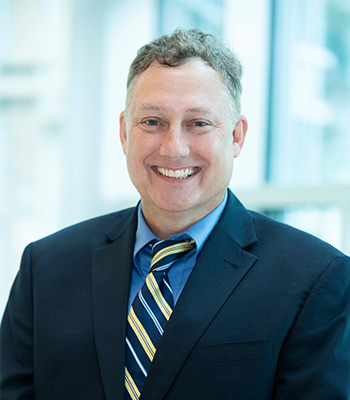Daniel Eadens’ research stems from the belief that much can be learned from studying how other countries approach education.
The International Council of Educational Professionals recently honored Daniel Eadens, an associate professor in the Department of Education Leadership and Higher Education, with the Global Impact Award for his dedication to global issues in education.
 Daniel Eadens
Daniel EadensThe ICEP was founded in 2020 with the goal of building a community of global educators focused on students, teaching and learning through collaboration. The Global Impact Award is one of three awards given by the ICEP to honor education professionals who have demonstrated their commitment to issues affecting the global community.
“I'm ecstatic to have been nominated for and received this Global Impact Award,” he says. “Recognizing that other international scholars view my collective work as having an impact globally has empowered, motivated, validated and inspired me to continue my work. Dr. Rosemary Papa continues to inspire my work with her leadership within Educational Leaders Without Borders.”
Eadens’ research focuses primarily on investigating current and critical issues in both local and global education, such as school safety, social justice in education, and school boards.
His inspiration to work in this field began during his time as a U.S. Army Reserve major in Japan and Iraq. A Wisconsin 4-H youth club sent him school supplies and requested that he distribute them to the Iraqi children. Despite his duties and the dangers of a war-torn region, Eadens arranged to deliver the supplies.
“I wrote an article called ‘International Need for Youth Philanthropy’ because I thought we need more philanthropy like this, where we have kids from any country donating to help out kids in other, less-fortunate countries,” Eadens says.
That article was later published by Papa in her book “Educational Leaders Without Borders.” It was also acknowledged as part of Eadens’ Global Impact Award for expressing “how good global citizenship can be encouraged in U.S. schools through the study of children around the world that are deprived of their civil and human rights.”
Eadens also enjoys learning about and researching other countries’ education systems. Some of the countries he has already visited and studied the education systems include Japan, Sweden and Finland. One of his goals includes earning another Fulbright scholarship to return to Japan and follow up with the universities and K-12 schools he previously visited on a different Fulbright trip.
"I'd like to do more Fulbrights and get out and explore education in other areas of the world,” he says. “I enjoy seeing how other countries handle education differently and if there's anything we could learn to make our education system better. The only way to know is to get out there and look.”